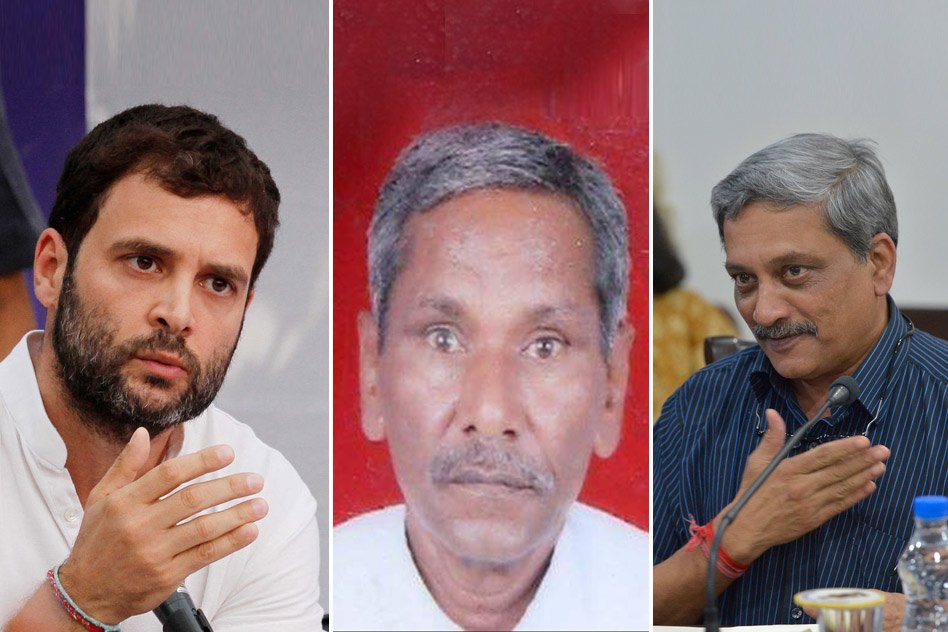
The Tragic Suicide Of Ex-Army Man Over OROP And The Following Political War. Here’s How Things Stand Now
3 Nov 2016 1:12 PM GMT
A day after the tragic suicide of retired Army man Ram Kishan Grewal over the One Rank One Pension (OROP) scheme on Tuesday, the incident snowballed into a big political war erupting in the heart of Delhi with oppositions blaming Prime Minister Narendra Modi for his failed promises.
The Logical Indian aims to narrate the significant points of the whole episode one by one.
The suicide of Ram Kishan Grewal
The 70-year-old ex-serviceman was involved in a protest for implementation of the promised OROP scheme. He was leading a protest and reportedly reached Delhi on Monday to meet the defence minister with an application stating that despite the implementation of the OROP, the soldiers have not received the increased pension as per the sixth and seventh pay commission along with the due arrears.
He committed suicide by ingesting “Sulfas”, a pesticide, while he and 10 others were returning to Jantar Mantar on Tuesday after failing to meet Lok Sabha Speaker Sumitra Mahajan and defence minister Manohar Parrikar over the non-implementation of OROP. He died later that day at RML Hospital.
Grewal was working for social welfare and had won several accolades for his contribution to social service and for changing the face of his village ‘Bamla’ in Haryana. He was also awarded the ‘Nirmal Gram Puruskar’ by the then President, Pratibha Patil, in 2008.
Bamla village became the first few ‘Nirmal Grams’ in Haryana. The government of India had launched this award for fully sanitised and open defecation-free Gram Panchayats in 2003 and gave away the first awards in 2005 as a component of its flagship scheme ‘Total Sanitation Campaign’.
Protest and detention of opposition leaders
High political drama erupted in Delhi after a day of the tragic suicide of Grewal. With the police detaining Congress leader Rahul Gandhi, Delhi Chief Minister Arvind Kejriwal and Deputy Chief Minister Manish Sisodia.
Rahul Gandhi was prevented from entering the hospital and meet victim’s family. Later, he along with Mr Sisodia were taken to the Mandir Marg police station. Kejriwal was detained later at the Lady Hardinge Hospital where Grewal’s body had been taken around 7.30 am for post-mortem.
Police also detained 12 members of Grewal’s family, including his two sons, other retired servicemen and Congress leaders Randeep Singh Surjewala and Kiran Chaudhary. They were held at different police stations in the city for a few hours before being allowed to leave.
While the opposition voiced heavy protest against the incomplete implementation of the OROP scheme by the Centre, Defence Minister Manohar Parrikar expressed his “heartfelt condolences” over Grewal’s death and said that he has asked his ministry to provide him with details.
VK Singh’s statement fuelling controversy
While all these were taking shape in Delhi, Union Minister VK Singh, also an ex Army chief, further fuelled the controversy by questioning the “mental state” of Grewal. “He has committed suicide. No one knows the reason behind it. OROP is being shown as the reason. What his mental state was we do not know. Let it be probed first. OROP should be kept above politics,” Singh told reporters.
What is OROP?
The one rank one pension (OROP) scheme was announced by the Modi government on September 6, 2015. The scheme, implemented after more than 40 years, promises equal pension to military personnel retiring in the same rank with the same length of service, regardless of the date of retirement. Prime Minister Narendra Modi recently said the first installment of nearly R5,500 crore was paid towards OROP.
Why do the veterans have complaint?
There are several concerns over which the ex-servicemen are still protesting over OROP. They describe these as “anomalies” in the scheme.
The main point of contention for the veterans is the time period that the government has chosen for the revision of pensions. The government has decided for revision every five years but veterans are demanding annual rationalisation of pensions.
The veterans have been demanding to fix pension at the top of the scale, instead of using the average mean. Presently, OROP schemes are fixed by average of highest and lowest pensions for a rank, with protection to those with higher pension.
The third issue of contention between the veterans and the government is that the former want OROP to be implemented with effect from April 1, 2014, and not July 1, 2014, as provided for in the government version.
The government initially said soldiers who took “voluntary retirement” would not be entitled to OROP. This hit a raw nerve as at least 40% of servicemen retire early. Only those who retired before the plan kicked in would be entitled to OROP, the government has said.
Defence Minister Assures to Resolve
On Thursday, Defence Minister Manohar Parrikar said that there were ne lakh ex-servicemen facing problems in getting pension as per the One Rank One Pension (OROP) scheme and their issues would be resolved within two months.
The Logical Indian hopes that this time the Centre will be able keep their words and solve all the disputes that’s been going on for the incomplete implementation of OROP.
 All section
All section













